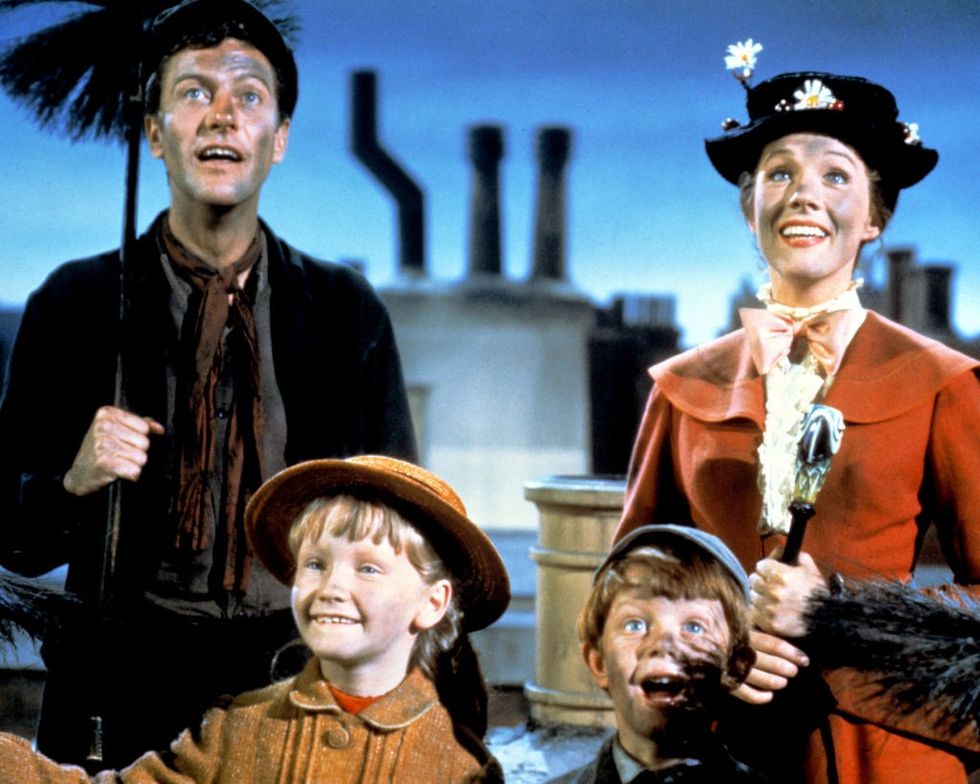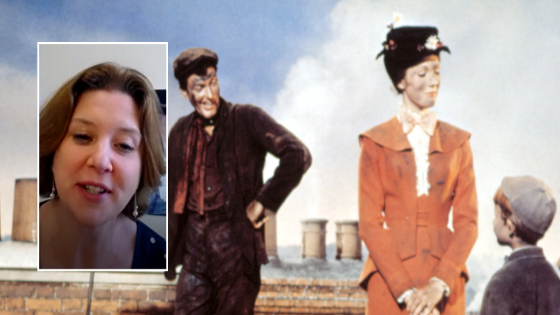A leading film historian has said the re-classification of Mary Poppins is “interesting, but not unusual”.
The British Board of Film Classification announced last month that it changed the age rating of the 1964 classic from a U to a PG.
Now, Dr Sian Barber from Queen’s University Belfast has spoken to GB News about the ruling and the history of film classification.
She spoke about the history of film classification, and that it can often be unpredictable what audiences get offended by.
Speaking about the Mary Poppins ruling, she said: “[It’s] interesting, but not unusual. Anything which includes dated language which is ether culturally inappropriate or with racist overtones etc. is a real flashpoint and it is not surprising that this has led to a re-categorisation.
“The other point is about the mainstream appeal of and access to the film.
“The film’s enduring popularity and presence on the Disney Plus site means that it is still very much in circulation and seen by a large number of people – which will have influenced and informed the change.
“If it were a less prominent film (one not often seen or rarely available) then it would be easier to ignore! Plenty of films include things which are now deemed inappropriate but unless they are widely seen (and seen by ‘family’ audiences) then they are not usually re-categorised. “

She added: “One of the things I find fascinating is you never know what people are going to be offended by. You go through all the historical files at the BBFC and you think ‘my goodness’ how could you be offended at that.
“You think people would be offended by the nudity for example or the swearing but sometimes it could be really really random things. Everyone has their own standards and tastes as an audience and I guess as a filmmaker you don’t really think about those things. You can’t really control it.
“Around freedom of speech, it is a tricky debate. You could say that if you’re making art for your own purposes. It doesn’t matter who you’re making it for. But as an audience member you could always say, ‘I’m not going to buy a ticket.’ we have an amazing capacity to self censor.
“I think there’s a lot of evidence of people getting angry,. Usually people who don’t see the films are often the ones who are the angriest about the films.”
Dr Barber said: “[Moral panic] has been there since the beginning. You see in the 20s and 30s and even in the teens, these morality organisations. Women’s groups, anyone concerned with children. There was very much a sense that ‘this is a dangerous medium and we need to control it.’
“Cinema has the power to be incredibly powerful and if you have dodgy politics that was seen as a no-no in the earlier days. It’s always been there. It just gets recycled again and again.
“It depends what the popular feeling is and what is deemed to be socially acceptable. In the earliest days the BBFC started off with only two no-nos and that was nudity and representation of the monarch.
“It really became about setting a tone and saying that ‘these things are things that we do not approve of.’ But just because they weren’t allowed, doesn’t mean they weren’t happening, filmmakers just had to get more creative with it. Moral panic and anxiety has always been there.
Source Agencies



